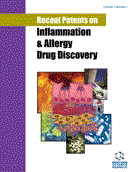Abstract
Co-stimulatory molecules are antigen-independent generators of secondary signals which aid in maintaining the homeostasis of the immune system. CTLA-4 is one among extensively studied co-stimulatory molecules which downregulate immune response. The attributes of immunosuppressive qualities and capacity to induce tolerance have made its recognition as a potential immuno-therapeutic agent for autoimmune mediated inflammatory disorders. In 2007, European Medical Drug Agency (EMEA) has approved administration of CTLA-4Ig (commercial name: Orencia® ; generic name: Abatacept), as a mean for co-stimulation blockade, for treating patients with rheumatoid arthritis. This review is focused on working mechanism of CTLA-4 from its recognition (bench) to its usage as a potential therapeutic agent (bedside) for several inflammatory diseases. The efficacious aspects of chimeric CTLA-4 in phase I, II and III clinical trials for rheumatoid arthritis, psoriasis, multiple sclerosis are concisely described. This article highlights recent patents and the future usage of co-stimulatory molecules as a therapeutic agent providing a promising immuno-modulatory approach in regulating inflammation.
Keywords: CTLA-4, co-stimulatory molecules, abatacept, Inflammation, rheumatoid arthritis, multiple sclerosis, psoriasis vulgaris
 18
18


















